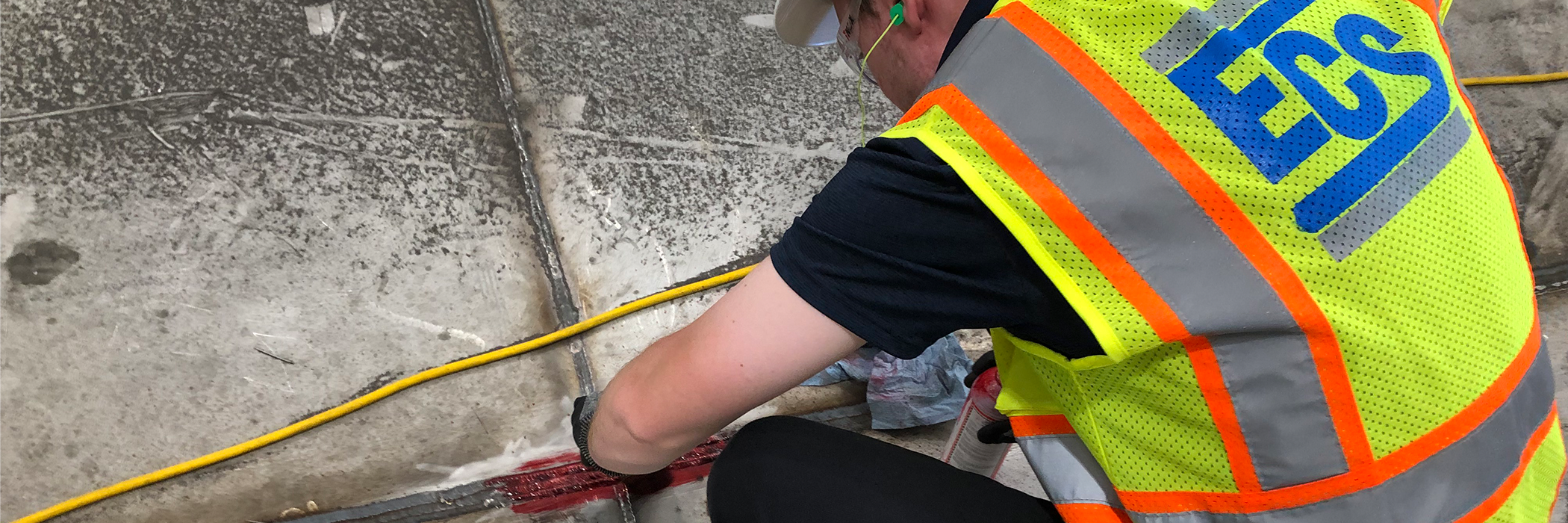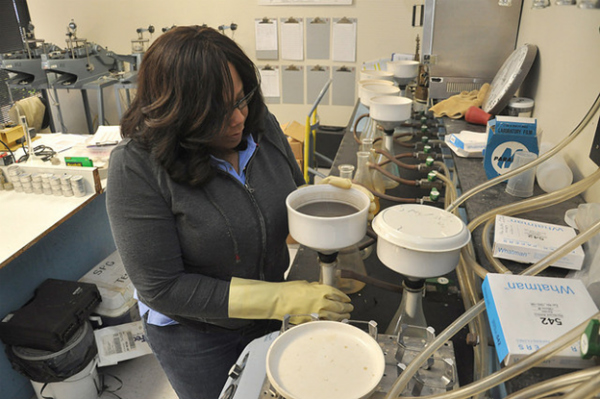Enhance Item Reliability with Our Cutting-Edge Materials Test Lab
Wiki Article
Accuracy Testing of Materials for Toughness and Durability
Accuracy testing of products for strength and longevity plays a vital role in different markets, including engineering, production, and construction. This procedure includes subjecting various products to rigorous evaluations to identify their capacity to endure exterior pressures and maintain their integrity gradually.Worldwide of materials screening, accuracy is extremely important. Engineers and scientists depend on trusted and accurate information to make informed decisions concerning material selection, style optimization, and item efficiency. By using sophisticated screening methods and advanced equipment, experts can examine the strength and longevity of a wide variety of products, such as metals, compounds, porcelains, and polymers.
This introduction will offer insights into the relevance of accuracy screening, the sorts of materials commonly subjected to testing, the essential criteria for toughness assessment, and the techniques used for durability evaluation. It will additionally highlight the applications and advantages of conducting accuracy screening in various sectors.
Importance of Accuracy Screening
Precision testing is a vital step in evaluating the stamina and longevity of products, offering exact and reputable information for informed decision-making. The quality and performance of materials play a crucial function in ensuring the safety and longevity of products and frameworks when it comes to manufacturing and building and construction industries. Consequently, performing precision screening is of utmost importance to identify whether the products satisfy the called for specs and standards.By subjecting materials to rigorous testing engineers, producers and procedures can analyze their mechanical residential or commercial properties, such as tensile toughness, hardness, and effect resistance. This info permits them to ensure that the products can withstand employed pressures and ecological conditions without failing or deterioration in time. In addition, accuracy screening aids identify any prospective flaws or weak points in the materials, allowing manufacturers to make essential enhancements or modifications to enhance performance and reliability.
Additionally, precision screening provides measurable and objective information that can be utilized to make and compare various materials informed decisions about their viability for certain applications. This info is especially important when selecting products for important parts or frameworks where failure can have extreme consequences.
Kinds Of Products Subjected to Checking
Various products go through screening for toughness and durability. This testing is essential to guarantee that the materials can hold up against the demands of their intended applications and to determine their expected life-span. The kinds of products subjected to testing are varied and include steels, polymers, porcelains, composites, and building products.Metals, such as steel and aluminum, are frequently evaluated for their tensile strength, solidity, and resistance to rust. materials test lab. These examinations assist identify their viability for usage in structural applications, equipment, and various industrial procedures

Ceramic materials, such as porcelain and ceramic tiles, are examined for get more their compressive toughness, heat resistance, and toughness. These examinations make sure that porcelains can withstand high temperatures and rough settings, making them suitable for applications in the construction, electric, and aerospace industries.
Composites, which are materials made from a combination of different parts, go through different tests to assess their mechanical residential properties, such as toughness, impact, and rigidity resistance. Composite products are widely utilized in industries such as aerospace, automobile, and sporting activities equipment production.
Construction products, including asphalt, concrete, and wood, undertake testing to identify their load-bearing capacity, resilience, and resistance to weathering. These examinations are essential in making certain the security and long life of bridges, frameworks, and roads.
Key Specifications for Toughness Assessment
One of the essential criteria for strength assessment is the tensile toughness, which measures a material's capability to resist pulling pressures without flawing or breaking. Another vital parameter is the compressive strength, which reviews a material's resistance to being or squashing squeezed with each other. By assessing these essential parameters, engineers and researchers can accurately analyze the strength and toughness of products, enabling them to make educated decisions in different markets such as aerospace, automotive, building and construction, and production.

Techniques for Sturdiness Assessment
Resilience analysis strategies are essential for assessing the long-term performance and integrity of products. These techniques are vital in determining the capability of products to withstand various environmental conditions and mechanical stress and anxieties over extended periods of time.One more method is cyclic screening, which involves subjecting products to duplicated loading and dumping cycles. This helps assess the product's tiredness resistance and its capacity to hold up against repeated stress and anxiety without failing. By analyzing the stress-strain response of the material during cyclic testing, researchers can identify potential powerlessness and Full Article review the product's sturdiness.
Moreover, non-destructive screening techniques such as ultrasonic testing and infrared thermography can be employed to assess the interior integrity and identify any kind of issues or damage in the material. These methods offer important information about the material's durability without triggering any type of damages to it.
Applications and Benefits of Accuracy Screening
Accuracy screening plays an essential role in examining the strength and durability of materials, allowing designers and scientists to obtain exact and trustworthy information for assessing their efficiency. The applications of visit this website accuracy screening are wide-ranging and can be found throughout different industries, including aerospace, automobile, construction, and production.One of the key benefits of precision screening is its ability to recognize prospective weaknesses or flaws in products. By subjecting materials to strenuous and controlled testing, any kind of vulnerabilities or issues can be identified before they lead to catastrophic failings. This allows makers to make necessary improvements or changes to enhance the total quality and longevity of their products.
Accuracy screening likewise helps in establishing the optimum style and make-up of products. By evaluating various variations and arrangements, engineers can determine one of the most suitable materials for specific applications. This causes improved efficiency, efficiency, and cost-effectiveness in different markets.
In addition, precision testing supplies useful data for the development and enhancement of products and manufacturing procedures. materials test lab. It permits scientists to gain a deeper understanding of product habits under different conditions, resulting in the advancement of new materials with enhanced stamina, durability, and efficiency features
Conclusion
In conclusion, precision screening plays an important function in assessing the stamina and longevity of products. By subjecting different kinds of products to rigorous screening, vital criteria for stamina analysis can be determined. Additionally, techniques for longevity analysis provide important insights into the performance and life-span of materials. This knowledge allows sectors to make educated decisions and ensures the growth of long-lasting and reliable items.Accuracy testing is an essential action in evaluating the toughness and durability of products, providing exact and dependable information for notified decision-making.Different products are subjected to testing for strength and longevity. The types of products subjected to testing are varied and consist of metals, polymers, ceramics, compounds, and construction products.
By examining the stress-strain response of the product throughout cyclic screening, researchers can identify prospective weak factors and evaluate the material's sturdiness.
In verdict, accuracy testing plays an important duty in assessing the strength and longevity of materials.
Report this wiki page